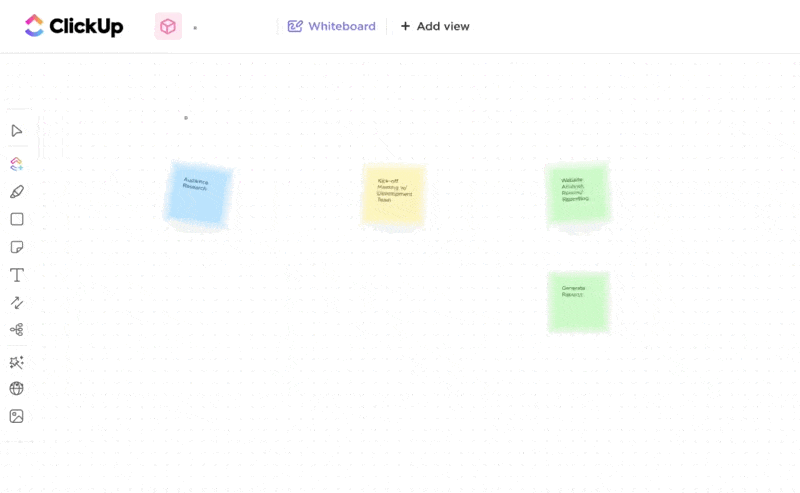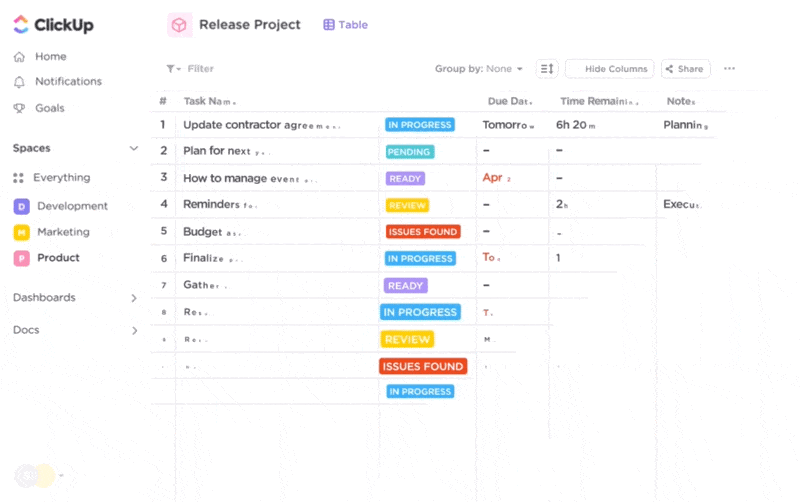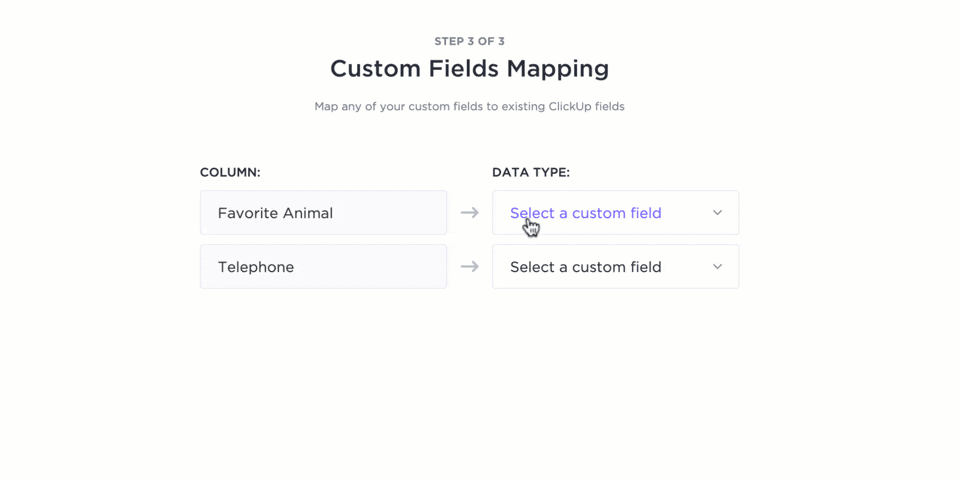INTJ vs. INTP: Key Differences & Similarities

Sorry, there were no results found for “”
Sorry, there were no results found for “”
Sorry, there were no results found for “”

If you’ve ever taken the Myers-Briggs Type Indicator assessment test, you’d know how it defines your personality based on factors such as sociability, emotionality, perception, and information processing.
If you are an introvert, there’s a high chance you will fall under the INTP or INTJ personality types. Even though they may appear similar, the slight variance in the last letter creates crucial differences.
These differences are subtle but change the way the character types perceive the world around them. Understanding the distinction requires careful analysis, and detailed personality tests can help. In this post, we will explore several key INTJ vs. INTP characteristics.
INTP stands for introverted, intuitive, thinking, and perceiving, while INTJ stands for introverted, intuitive, thinking, and judging. While both types are introverted, intuitive, and thinking, the primary difference lies in their judging versus perceiving tendencies. Judging or perceiving relates to how you approach life, particularly planning.
Those who prefer judging (INTJs) often find comfort in schedules, structure, and clear expectations. Conversely, those who prefer perceiving (INTPs) value flexibility and spontaneity and may be put off by excessive structure.
Both types are relatively rare: INTPs make up about 3% of the population, while INTJs make up 2% of the population.
According to Dario Nardi, Ph.D., a personality expert and author of ‘Neuroscience of Personality’, INTJs are often seen as busy, orderly introverts who are both innovative and hardworking.
INTPs, on the other hand, are known for being big-picture thinkers, highly creative, and a bit more flexible than INTJs, as noted by licensed therapist De-Andrea Blaylock-Solar, MSW, LCSW-S, CST.
Let’s explore the INTJ vs. INTP personality types, how they employ the same cognitive functions differently, and the dominant mental process called introverted thinking.
INTJ (Introverted, Intuitive, Thinking, Judging):
Strategic, organized, and future-focused. INTJs excel at long-term planning, efficiency, and structured problem-solving.
INTP (Introverted, Intuitive, Thinking, Perceiving):
Curious, adaptable, and big-picture thinkers. INTPs thrive on exploring ideas, analyzing concepts, and valuing flexibility over rigid plans.
Key Differences:
Team Collaboration Tip:
Regardless of personality type, foster seamless teamwork with ClickUp—a flexible tool designed to enhance communication, align goals, and boost productivity across diverse teams.
Below is a concise comparison table highlighting the key similarities and differences between INTP and INTJ personality types——including those of their cognitive function stacks.
| Features | INTP | INTJ |
|---|---|---|
| Dominant function | Introverted thinking (Ti): INTPs prefer logical analysis and internal coherence. They enjoy dissecting complex ideas and theories to understand how things work | Introverted intuition (Ni): INTJs rely on their introverted intuition, which enables them to focus deeply on patterns, insights, and future possibilities |
| Auxiliary function | Extraverted intuition (Ne): INTPs use their extraverted intuition to explore different possibilities and generate creative solutions to problems | Extraverted thinking (Te): INTJs use extraverted thinking as their auxiliary function, prioritizing efficiency and organization in their approach to tasks and decision-making |
| Tertiary function | Introverted sensing (Si): INTPs possess introverted sensing to recall past experiences or factual information, but it typically plays a minor role in their decision-making process | Introverted feeling (Fi): INTJs possess introverted feelings as their tertiary function, allowing them to consider personal values and emotions in their decision-making process |
| Inferior function | Extraverted feeling (Fe): INTPs may struggle with expressing emotions outwardly or understanding the emotional needs of others, as their feeling function is typically less developed | Extraverted sensing (Se): INTJs may access extraverted sensing in times of stress, leading to increased awareness of their immediate surroundings and a focus on concrete details |
| Approach to logic | INTPs prefer to critically analyze information, seeking logical coherence and consistency in their understanding of the world | INTJs approach problems with a systematic and structured mindset, focusing on developing comprehensive plans and strategies for achieving their goals |
| Decision-making | INTPs are open to exploring various possibilities and may adapt their plans as they come across new information | INTJs tend to make decisions based on logical analysis and are typically more decisive in their approach |
| Focus on future | INTPs are intrigued by potential future scenarios and enjoy brainstorming innovative ideas and solutions | INTJs are future-oriented planners, focusing on developing long-term strategies to achieve their objectives |
| Work environment | INTPs thrive in dynamic and creative environments. They excel in settings that allow for intellectual stimulation and creativity, where they can explore new ideas and concepts | INTJs thrive in structured and organized environments. They perform well in roles that require detailed planning, organization, and problem-solving within a structured framework |
INTPs are often described as the ‘Logician’ or the ‘Architect’ due to their analytical and innovative nature. These individuals are curious about the world around them and are driven by a relentless quest for understanding and knowledge.
INTPs enjoy exploring abstract theories and ideas, often immersing themselves in complex intellectual puzzles to uncover the underlying principles governing the universe.
INTPs exhibit several key characteristics that define their personality. They are:
INTPs possess several strengths that contribute to their success:
However, INTPs also have weaknesses that they may need to address:
INTPs thrive in environments that allow for intellectual stimulation and creative problem-solving in the workplace. They excel in roles that require critical thinking, analysis, and innovation, such as research, software development, and strategic planning.
INTPs value autonomy and independence in their work, preferring to have the freedom to explore new ideas and concepts without undue constraints or micromanagement.
As leaders, INTPs bring a unique perspective and analytical approach to problem-solving. They’re great at developing innovative strategies and solutions and anticipating potential challenges and opportunities.
However, due to their logical focus, INTP leaders may struggle with managing interpersonal dynamics and motivating teams.
To be effective leaders, they should focus on improving their communication skills and delegating tasks effectively to enhance their team’s strengths.
As employees, INTPs are valuable assets to any organization. They excel in roles that require independent research, strategic planning, and innovation, often making significant contributions to projects and initiatives.
While they may prefer working alone or in small groups, INTPs can also collaborate effectively with others, especially in brainstorming sessions or project meetings where their analytical insights can complement the perspectives of their colleagues.
INTPs are well-suited for careers that allow them to use their analytical skills and explore their intellectual curiosity.
Some popular career paths for INTJs are:
Additionally, INTPs may enjoy roles in fields such as philosophy, writing, or consulting, where they can engage in deep intellectual exploration and analysis.
INTJs are often called ‘Masterminds’ or ‘Strategists’ due to their strategic and visionary approach to life.
These individuals are known for their analytical power, long-term planning abilities, and unwavering determination to achieve their goals.
INTJs exhibit several key characteristics that define their personality. They are
INTJs possess several strengths that contribute to their success:
However, INTJs also have weaknesses that they may need to address:
INTJs approach work with a strategic mindset, often focusing on long-term goals and outcomes. They’re natural leaders who excel at envisioning future possibilities and devising strategic plans to achieve them.
In the workplace, INTJs are known for their analytical thinking, problem-solving skills, and ability to see the big picture.
They’re often drawn to roles that allow them to use their strategic thinking and innovative ideas to drive projects forward.
As leaders, INTJs display a unique blend of strategic vision, analytical thinking, and determination. They’re skilled at setting clear goals and devising long-term plans to achieve them, often inspiring others with their ambitious vision for the future.
However, INTJ leaders may struggle with managing interpersonal dynamics and come across as overly demanding or critical. To be effective leaders, they should focus on developing their communication skills and fostering a collaborative and supportive work environment.
INTJs can improve their communication skills with practical strategies from communication skills books. These books offer valuable tips for improving communication in several situations, allowing INTJs to express their ideas and knowledge effectively.
As employees, INTJs are valuable assets to any organization as they excel in roles that require long-term planning, problem-solving, and critical thinking, often making significant contributions to projects and initiatives.
While they may prefer to work alone or in small, focused teams, INTJs can collaborate well with others, especially when working toward a common goal or shared objective.
INTJs are well-suited for careers that allow them to use their analytical skills, strategic thinking, and visionary mindset.
Some popular career paths for INTJs are:
They may also enjoy roles in fields such as finance, law, or academia, where they can leverage their analytical and long-term planning abilities to achieve success.
While INTPs and INTJs share similarities in their analytical nature, they exhibit distinct differences in their cognitive functions and decision-making approaches.
INTJs focus on productivity and efficiency to accomplish tasks according to their planned agendas and acquire new skills with a purpose. They meticulously lay out each step, ensuring a calculated approach to progress.
INTPs explore ideas and concepts for the sheer joy of discovery. They enjoy playing devil’s advocate and exploring unconventional or speculative theories. Their curiosity leads them to explore uncharted territories. When a topic captures their interest, they eagerly explore it.
INTJs have a focused range of interests, especially evident in their music preferences. This focused approach extends to their choices in books, movies, and shows, making them experts in their chosen fields.
INTPs have more varied tastes, often enjoying various music genres, artists, and subgenres.
Both INTJs and INTPs have a warm and caring side that is not immediately apparent. When someone breaks through their initially reserved demeanor, they reveal a deeply caring nature. INTJs show a deep concern and affection for their loved ones.
In contrast, an INTP’s caring side can be surprising, as they transform into playful and affectionate individuals. When in the company of close friends, an INTP’s goofy and affectionate alter ego emerges, often surprising those unfamiliar with this side of their personality.
When faced with a problem, INTJs are proactive and decisive. They immediately set out to gather information and find solutions, weighing the pros and cons of each option before making a decision. Their approach is goal-oriented and focused on meeting their high standards of achievement.
In contrast, INTPs tend to approach problems differently. They often analyze the issue extensively, exploring numerous potential solutions and possibilities. This tendency can sometimes lead to overthinking. INTPs are also known for their quiet rebellion against systems, preferring to pave their path to success.
INTJs engage in conversations that are coherent and logically structured. They focus on the main idea and typically conclude with a clear and firm resolution. Their concise speech flows logically, making them effective leaders and communicators.
INTPs are tangential thinkers. Their conversations may start on one topic but quickly shift to unrelated areas. Discussions with an INTP can jump from metaphysics to the meaning of life to politics, with no clear direction or conclusion. This lack of articulation is a distinctive trait of INTPs.
During discussions, an INTJ looks for a clear conclusion or point, while an INTP sees the conversation as exploring possibilities without a specific goal.
Both types are highly analytical and logical in their thinking. They have a natural inclination toward problem-solving and seeking knowledge. INTPs tend to be more open-minded and flexible, while INTJs are known for their strategic and goal-oriented approach.
Both types rely heavily on their intuition. They trust their gut feelings and internal insights.
Both types value independence and prefer to work autonomously. They generally prefer to avoid leadership roles but also struggle with being followers.
Both types excel in long-term strategic thinking. INTJs tend to be more structured and organized in their planning, whereas INTPs may prefer a more flexible and adaptable approach.
Collaboration between INTP and INTJ personalities can be both fruitful and challenging due to their differing approaches to problem-solving and communication.
However, by understanding each other’s strengths and weaknesses and using effective collaboration strategies and team collaboration tools like ClickUp, these two personality types can complement each other well in the workplace.

ClickUp is a standout project management and team communication app that supports diverse personalities and work styles.
It’s a great tool for both extroverts and introverts in the workplace because it allows for different communication styles on its platform. It caters to the diverse communication preferences of each personality type through voice/video notes in Clip, @comments in Tasks, Chat for instant messaging coworkers, ClickUp Whiteboard to brainstorm ideas with the team, and AI to help craft messages, summarize meeting notes, and create daily standups.
With its 15+ views and extensive features, ClickUp is ideal for teams looking for effective collaboration and communication across all types of employees.
ClickUp offers additional communication plan templates that can enhance communication and collaboration within the team:
Use ClickUp’s Communications Plan Whiteboard Template to plan your communication strategies. This template helps you to outline objectives, target audiences, messaging strategies, and communication channels.
By visually mapping the communications plan, teams can ensure clarity and alignment in their messaging.
ClickUp’s Communication Matrix Report Template offers a systematic approach to track and analyze communication effectiveness. You can use this template to evaluate the impact of your team’s communication efforts, identify areas for improvement, and adjust strategies accordingly.
Using data-driven insights allows you to optimize communication processes for maximum efficiency and impact.
ClickUp’s Meet the Team Template helps your team members showcase their strengths, roles, and personalities. You can encourage your team members to include the Myers-Briggs Leadership Personality Type in their profiles, fostering a deeper understanding of each other’s communication preferences and tendencies.
This will enhance communication and collaboration by promoting self-awareness and empathy within the team.

With ClickUp, you can establish processes for key tasks to create structures that guide the team, share these frameworks on ClickUp Docs, and update them as needed, leading your team through the progress.

With the ClickUp’s Task comments feature, you can stay informed about your team’s needs and concerns async. You can use the @Comments feature to provide clear, concise feedback on a task, ensuring the message is focused and actionable.
Moreover, ClickUp’s Clips feature allows your team members to communicate through voice and video notes, providing a more personal and expressive way to convey messages. You can use Clips to deliver clear instructions, provide feedback, or share insights with your team members.

ClickUp Brain can help summarize this documentation for quick reference. Instead of doing everything yourself, you can begin delegating tasks with ClickUp. Create detailed documentation for your team, setting them up for success.

Similarly, ClickUp’s Chat feature enables instant messaging between coworkers, providing a convenient platform for real-time communication. You can use this feature to quickly discuss project updates, clarify instructions, or address urgent issues with your team members.
📮ClickUp Insight: Our survey found that knowledge workers maintain an average of 6 daily connections at their workplace. This probably entails multiple pings back and forth across emails, chat, and project management tools. What if you could converge all these conversations in one place? With ClickUp, you can! It’s the everything app for work that combines projects, knowledge, and chat in one place—all powered by AI that helps you and your team work faster and smarter.
If you want to keep track of your reading and learning, you can efficiently organize reading lists and other learnings with free project management software like ClickUp.
You can create book reading projects, record important details, set priorities, and track progress—all in one place. This allows you to customize your workspace according to your professional and personal preferences.

Try different ClickUp Views like List, Calendar, and Board View to visualize and track your book projects. These views help you track individual book entries and get an overview of all your reading projects.
Whether you prefer a detailed List View or a visual Kanban View, ClickUp ensures these views are up-to-date and reflect your project landscape and work habits.

With ClickUp Custom Fields, you can create custom records for the books you’ve read, are reading, or plan to read. Create fields like Book Title, Author, Key Takeaways, Review, Rating, etc., to keep a comprehensive overview of your reading journey handy at all times.
Overall, ClickUp is a powerful tool for managing projects, setting and achieving project objectives, and prioritizing work based on measurable objectives outlined in the project communication plan. Its versatility and range of features make it an invaluable asset for any team.
Personality nuances significantly shape behavior, thoughts, and overall life approach. While INTJ and INTP differ primarily in their judging versus perceiving traits, these distinctions make them unique personality types.
In team management, understanding these nuances can help you prioritize your work effectively.
Project management tools like ClickUp offer a range of tools and features that cater to different personality types. Whether you’re an INTJ who prefers structured planning or an INTP who thrives in a more flexible environment, ClickUp’s customizable features can adapt to your needs.
Sign up for free with ClickUp and enhance the quality of your team collaboration today.
© 2026 ClickUp